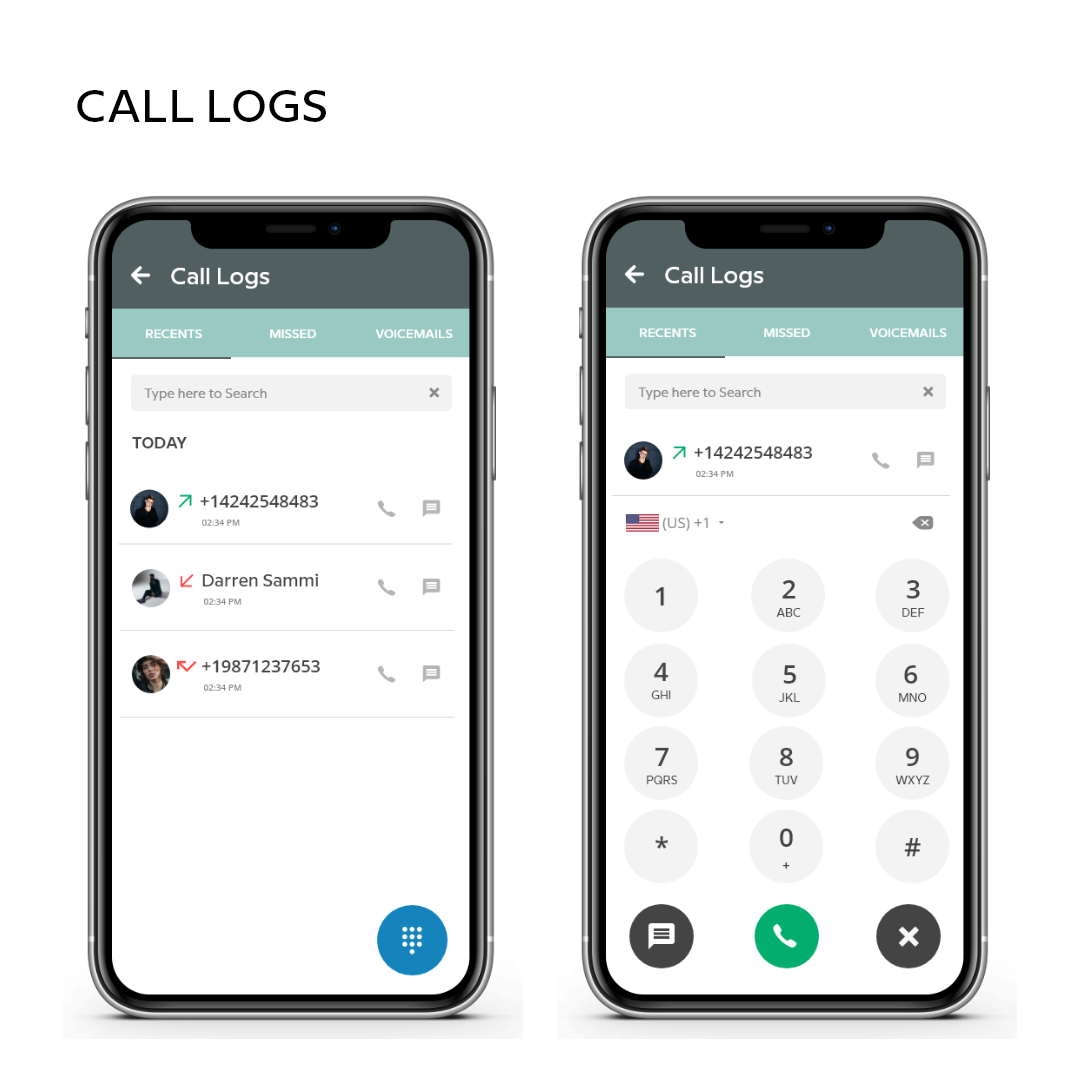
Competent sales teams do not emerge overnight. It entails a long-term commitment to coach sales teams. De facto, sales coaching is an unskippable element of developing a high-performing sales force.
Managers can be disappointed due to missed sales quotas. However, stats show that with sales coaching, sales teams can achieve a 91 percent sales accomplishment rate.
So, have you drilled coaching to help your sales team? If not, then keep reading this blog.
We’ve uncovered the ultimate business guide where we will discuss techniques, tips, and the importance of sales coaching.
Let’s start with the first thing first!
What is Sales Coaching?
Sales coaching is the practice by which sales managers strive to improve overall sales performance. Managers assist salespeople in achieving their goals on a regular basis.
A sales coach acts as an advisor, instructor, mentor, and trainer in this situation. They’re intended to provide agents with the tools and resources they need to deliver great sales results consistently.

So, let’s understand it by comparing it with sports coaching. Often, a sports coach prepares and mentors athletes to win every game.
Moreover, when it’s time to play on the field, they keep an eye on their players from the bleachers or benches, encouraging them all the way through the game. Notably, a sports coach offers suggestions off the field on how they might enhance their performance in the future.
Sales coaching mirrors a lot from sports coaching. To begin, you’ll need a well-defined sales coaching approach based on performance evaluation, feedback, and mentoring. So, let’s get right to work!
Techniques for Sales Coaching
The primary purpose of sales coaching is to foster a culture of growth through mentoring and assistance. Here’s a list of sales coaching tactics to use if you’re wondering how to coach your sales team:
1. Real-time Call Monitoring
Assessing and advising agents on the job is the first and foremost step in sales coaching.
The best approach to groom agents for progress is to coach them during calls. During actual sales calls, instruct them on how to deal with customers.
For call monitoring, managers can directly jump on live calls between agents and prospects. Then they can follow these techniques to coach agents:
1. Listening: You can join live conversations between consumers and agents. Then you can listen and evaluate conversations between agent-customers without either party knowing.
2. Whispering: During sales conversations, coach and instruct agents with instructions. Supervise and guide agents on how to handle sales calls in real-time. All of this occurs without the customer’s knowledge on the other end of the line.
3. Barging: If necessary, you may choose to jump on calls and communicate directly with customers. Agents will determine how to communicate with customers, establish rapport, and bring the conversation to a close.
2. Call Recordings
Call recordings are a useful source of information for managers who are teaching agents on sales and demo calls. This call recording option is available if you use a reputable business phone provider.
Analysis of sales representatives’ performance is the first step in sales coaching. Sales representatives can use call recordings as a reference point.
Managers can implement one-on-one coaching sessions with sales representatives after gathering insights from Call recordings. They can access whole call recordings, which they can utilize to highlight agents’ strengths, faults, and opportunities for growth.

Managers can use call records to point out both profitable and ineffective sales conversations. Call recordings can also be used by sales managers to create compelling sales scripts and proposals.
3. Analyzing Call Center Data
All of the data you need to support your coaching efforts is acquired by call center analytics. It provides the framework for coaching your representatives.
Call center metrics offer you a comprehensive report of how well your agents are performing. And you’ll need this information to conduct coaching sessions.
The track report includes the number of outbound calls made by agents each day, as well as missed calls and other call-related activity. So many interactions take place on a daily basis; only the most serious issues or complaints which stand out are resolved.
A comprehensive call center analytics dashboard allows you to dig deep into your agents’ performance and gives you their detailed background report for effective coaching.
4. Sales Coaching on a Tactical Level
Without working on the refinement of selling, sales coaching is inadequate. Tactical sales coaching focuses on both the strategy and the nuts and bolts of the sales process.
This implicates evaluation of the greater sales game plan on a regular basis. It also necessitates the adoption of best practices in the areas of lead qualification, rapport building, prospecting, sales closing, objection handling, and so on.

Sales coaches must equip agents with all of the essential tools and methods required to attain the sales target. Sales coaches can assist agents in developing a personalized plan of action after observing their performance.
5. Coaching for Sales Funnels
It’s quirky to make your way through the sales funnel. Sales managers can help their agents by training them on how to deal with prospects at various levels of the funnel.
The core objective of sales funnel coaching is to avoid time and energy wastage on prospects who are unlikely to convert. This is why prioritizing leads is a crucial skill for agents to master.

Agents should be taught how to spot high-ROI leads and how to move them to the bottom of the funnel. It’s also crucial to coach them on how to follow up on leads in a proactive manner.
Equip agents with tools to help them optimize the conversion process as they progress through the sales funnel. This approach eventually helps you enhance your overall sales ROI.
6. Peer-to-Peer Learning
The power of peer-to-peer reviews is unrivaled. Sales managers and executives aren’t the only ones who have useful information. Salespeople might also benefit from the advice of their peers.

Agents can observe and evaluate the performance of their coworkers in peer-to-peer learning. The team’s top performers can go down the line to share their approach and ideas with the rest of the team.
Important questions regarding the sales process can be discussed among sales agents, like –
- “Can you recommend a winning cold calling script?”
- “What’s the most effective technique to establish rapport with prospects?”
- “How can I boost my win rate?”
7. Personalised Mentoring Sessions
Personalized coaching sessions with sales agents differ sales training from sales coaching. A lot of key topics are often left out of group sales training.

Sales coaching is more focused on the one-to-one conversation between salespeople and supervisors. Here, sales leaders and managers guide agents by delving deeper into their performance.
The objective is to provide a sphere where agents may openly discuss their doubts and concerns. Meanwhile, sales managers can advise them on areas where they can improve, goals, and objectives.
8. Sharing Knowledge
Sales teams stake on prospecting, closing deals, and other sales activities. Delivering sales agents with an up-to-date knowledge base is an important part of the coaching process.
All sales communications rely on sales content such as cold calling scripts, product demo scripts, and email templates. One of the essential objectives of sales coaching is to improve sales content.
Managers should get down with agents to go through their scripts during sales coaching. Sales managers can instruct agents on how to improve these scripts and create a great sales content deck by guiding them through the process.
9. Giving and Receiving Feedback
If you don’t provide your agents with feedback for growth and improvement, all of the above-mentioned sales coaching strategies will go in vain.

Constructive feedback is meant to help agents identify their strengths, work through their drawbacks and acquire good practices. This may take the shape of sales performance reviews as well as one-on-one mentoring sessions.
The best way to give feedback is by being clear and concise with your observations. Provide agents with actionable suggestions so that they can jump straight to executing these.
Why is Sales Coaching Important?
Sales coaching is not a pointless practice that sales teams feel perplexed to undertake. It has substantial advantages that contribute to overall sales revenue.
Here are some reasons to hire a sales coach:
1. Increase Sales Productivity
Sales coaching allows managers and executives a spot to point out gaps in each agent’s performance and provide feedback to them. As a result, agents are learning to develop best practices and approaches that will eventually lead to sales success.
2. Make a Highly Motivated Sales Force
Sales deals can take a long time to finalize. On top of that, agents must face their own fair number of rejections.
Sales coaching, which includes tailored mentoring sessions, peer-to-peer learning, feedback, and other methods, is intended to assist sales agents in closing successful deals. After all, motivation is proven to help sales teams to face any challenge.
3. Manifold’s Success Rate
Sales coaching also aids in enhancing the sales success rate. The chances of closing deals rise when agents have access to all of the necessary sales tools and tactics. This is why investing in sales coaching will benefit your team remarkably.
4. Reduces the Agent Turnover
Sales coaching also aids in the reduction of agent turnover. They feel demotivated by the lack of sufficient sales training, which eventually results in lower turnover.
So, if your team is lacking somewhere in sales, then the below-mentioned tips and techniques are worth implementing.
Tips for Sales Coaching
Following the most effective sales coaching practices is always a smart idea if you want to establish a powerful sales coaching framework. You can rely on the following tried-and-true sales coaching tips:
1. Make an Investment in Sales Technology
Sales coaching should be data-driven and not based on random intuitions. For Sales, training should be data-driven rather than relying on gut instincts. You’ll need good sales tools and technology for this.
Managers can use determined methods and technology to derive sales metrics. Feasibly, you can use your sales enablement tech stack for this.

Call monitoring and call center analytics are examples of sales enablement solutions that can provide insight into your agents’ performance. All of your coaching strategies are derived from this data.
2. Promote Agent one-on-one Consultations
Managers/team leaders and agents engage in a two-way conversation known as coaching. It provides a zone where your agents can present their grievances and concerns.
Get ready to learn about your agents’ personal and professional motivators. These motivators play a big role in sales representatives’ performance. While, in the meantime, you can reveal your vision to the agents. Honest feedback can help agents go from 5 to 100 in a short period of time.
3. Establish a Rewarding System
The sales coaching exercise is futile without a proper rewards system in place. Tying rewards to sales quota drives agents to perform well.
Incentivization is an excellent approach to drill good habits in your sales process. In fact, this would help you to set a good example for your sales team and scale up your accomplishment.
4. Put an Emphasis on Skill Development
Agents must constantly update their abilities since sales are such a dynamic business. Sales coaching practices should focus on skill development.
The ultimate goal of sales coaching is to assist representatives in learning new abilities and refining old ones. So, if your agents aren’t learning critical sales skills, all of your sales coaching efforts will go worthless.
5. Offer Constructive Criticism
Providing feedback is an art that sales coaches must master. Remember, your Sales coaches must master the art of providing feedback. Remember that your feedback can boost or deflate a sales representative’s confidence.
Don’t just concentrate on the representative flaws. When critical feedback is accompanied by praise for good work, it is easy to accept and make the change for good.
Constructive feedback incorporates both the positive and negative aspects of a situation. In this approach, your salespeople learn to enhance their performance without jeopardizing their confidence.
6. Encourage Reps to make Goals and Plans of Action
Encourage sales representatives to make it a habit to set goals and create action plans. Spoon-feeding is not recommended in smooth sales coaching.
Allow your sales agents to determine their own personal objectives. Give moral support in the goal-setting process. Inspire them to put pen to paper and design a strategy for accomplishing the objectives.
The sales representative who executes these exercises on a regular basis is more likely to achieve long-term success.
Let’s move ahead to explore the best techniques for sales coaching.
The Next Steps in Sales Coaching
Now you’ve grasped the sales coaching process, it’s time to put your knowledge into practice. While there is no definitive way to approach it, we believe that observing your sales reps on the job is a good place to start.
To put it simply, monitor the performance of your sales agents, provide feedback, and help them improve!
Want to learn how 4,500+ businesses are monitoring their sales teams with VoiceRules? Let our experts give you a run-through of Call Monitoring and other important features.